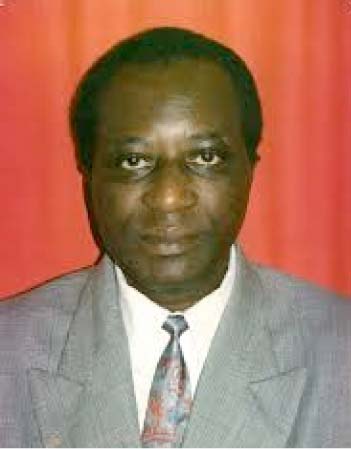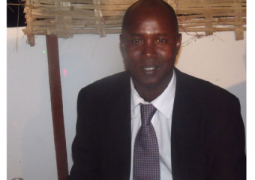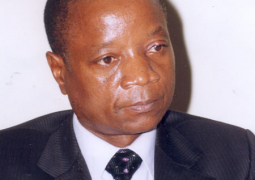
Having
carefully gone through the CRC process thus far, allow me to share my thoughts
and advice.
What
the CRC is presenting the country at this moment in time should not be used as
an occasion for interreligious or for any tribal, cultural divisions of any
kind. To do so would in fact even be an abuse of the opportunity that now
presents itself. If anything, the occasion ought to be used to affirm to
ourselves what The Gambia has always represented and what Gambians are all
about.
1) This ‘peace’ we have always maintained
and enjoyed, this peace that all visitors to Gambia have all, without
exception, recognized and admired, was
planted or established not on Christian-Muslim differences or disagreement, or
acrimony, but on true harmony and sense of oneness through family, kinship, and
sense of one people. Religion was never in the past employed or allowed to
create or foster disharmony amongst us. Of course the big truth of the matter
is that the peoples of The Gambia lived as one big family long before
Christianity or Islam came to our land. For example there were families of
Ceesays, Joof, Njies, Jattas, living together harmoniously even up to and
through the religious divide brought by Christian and Islamic missionaries. We
know that even in this period that we live in, most families of The Gambia
comprise Muslims and Christians, a mixture produced no doubt by free choice of
religion. If this situation of free choice, peace and harmony has been
agreeable for us in the past for as long as we can remember, why should we now
or at any future point in time, allow for a breakdown that would be detrimental
to good interfaith relations?
I
believe the peace and harmony which has always been a key feature of The
Gambian character ought to be maintained at all cost.
2) Regarding the Current debate,
I
believe all the emphasis on ‘Shari’ah’ is divisive. Look at all the other
countries thatpractise Islam, and even those that have a Muslim majority, and
the question is ‘have they had to enshrine Islamic precepts and practices,
including Shari’ah, in their State Constitutions to make Shari’ah applicable in
those States’? Does the absence of ‘Shari’ah’ in their State Constitutions
cause them any adverse situations? or any setbacks? These countries whether
distant or in our own Sub-region are all developing relatively well. Meanwhile
Gambia is virtually the least of the least Developed Countries (LDC’S) and the
question is ‘would divisions and divisionism help us develop or indeed impede
that process?
3) Why do we need a Shari’ah High Court
when there is already the High Court of The Gambia with original jurisdiction
to deal with all civil and criminal proceedings?
Would
the introduction of this proposed new Court not be a way of giving prominence
and privilege to one particular religion, contrary to the letter and spirit of Section
67 (6) of the Draft Constitution?
And
if Shari’ah is to be legislated at all, would the Cadi Courts not be more
appropriate starting point to deal with Shari’ah matters with right of appeal
to Superior Courts and the Supreme Court being the apex?
4) The use of the term ‘Shari’ah’ lends
itself to a number of interpretations: Shiite, Sunni, Ahmadiya, Maliki, Hanafi,
Shafi or other schools of Islamic thought. Which interpretation is the
applicable one? All Gambians have a right to know and to understand what is
contained in their Constitution.
5) When we observe inSection 9 (e) of the
Draft Constitution(S7 (f) of the 1997 Constitution) that Shari’ah is to be
applied to “members of thecommunities to which it applies”, it is to be noted
that such provision should not be imposed on those members who do not accept
Shari’ah to be binding on them, including some Muslim non-conformists and even
non-Muslims living in those communities (communities meaning communal
entities). This position of the Constitutional provision needs to be clearly
spelt out to avoid all doubts. Also is it permissible to incorporateBaha’i
precepts, Christian Canon Law, Torah, in the Constitution’s personal law
section?
6) Including the term ‘Shari’ah’in a
national document is unnecessary to the extent that such inclusion does not
solve a problem that anyone can see, whether actual or imaginary. In all the
circumstances as earlier enumerated, the prudent course would be to leave out
the application of this term since all it does is help create doubt and
inconsistency having regard to the non-discrimination provisions contained in
our document; and the secular, all inclusive, tolerant nature of our society as
it currently is, and how it has always been from time immemorial.
7) Why this concern about the term?
The
concern is not without basis; it does not appear necessary; other bigger
Islamic countries are not including it at all in National Constitutions; lastly
the recent threats in the country against Christians, owingprobably to Islamic
influences created by certain inclusions in the National Constitution,
givegreat cause for concern; the general silence of Muslim elders during
the crisis over the Banjul Christian
Cemetery and the unilateral, unwarranted and unconstitutional declaration of
The Gambia as an Islamic State, give even greater cause for concern. As a
matter of fact some Banjul Muslim Elders went to the extent of publicly
congratulating the former President for those actions.It is not clear whether
or not Banjul Muslim Elders even consulted with Muslims in other parts of the
country.
Everything
considered, some have good reason to be concerned, if not apprehensive given
the sudden and unexplained elimination of the word ‘Secular’ from our Draft
National Document while continuing to promote and now progressively to
intersperse the word ‘Shari’ah’ within it. To be very honest to CRC and to
fellow Gambians, given all these recent declarations and textual overtures, I
myself like many other non-Muslims am not comfortable with all these
incidences. The Wolof people have a saying: ‘ku ndobin rey sa maam, boh giseh
lu nyool daaw’.
8) A cross-section of younger Muslims that
I have spoken to havealso indicated no big interest in this question whether or
not Shari’ah should be included in the Constitution. Some have even argued on
what the correct interpretation should be while others declared their
detachment from it all. It seems therefore that this adherence to Shari’ah is
being held and pursued mainly by some elders particularly some who have been
regarded as holdingIslamic extremist and fundamentalist views, whether they be
inside The Gambia or outside The Gambia.
The
CRC is therefore implored to raise this specific question of inclusion of
Shari’ah directly to their audiences across the country. My guess is that many
will be found disinterested or indifferent on the topic whilst some may even
disagree openly about the correct version of Shari’ah, sought to be applied.
The test would be that if apathy or disagreements emerge, then that is one good
reason not to include ‘Shari’ah’ in the Constitution; this reason in addition
to the fact that a great number of non-Muslims are more comfortable to see it
excluded.



